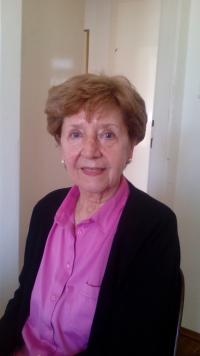They couldn’t pinpoint the cable radio broadcasts during the occupation

Download image
Jana Čipáková, née Bilavčíková, was born on 16 April 1941 in Brno. She graduated from the Faculty of Arts and taught at a village school in Velké Němčice for two years. She then found employment as a journalist at the Brno cable radio. She and her husband and a technician from the radio bravely started a resistance radio broadcast during the Soviet occupation on 21 August 1968. She informed the inhabitants of Brno of events in the city from an underground studio in the town hall cellar non-stop for a whole week. The fact that it was a cable radio meant that the Russians could not locate it and disrupt the broadcast, and although people knew where the cable radio was broadcasting from, no one informed the Russians of their whereabouts. In the early years of the normalisation, in 1970, Jana Čipáková was fired by the management of the Brno branch of Czechoslovak Radio; her husband also lost his job and their daughter was denied her application to university. The witness worked as a shop assistant at a bookshop, then as a clerk, and finally at a museum. After the Velvet Revolution in 1989 she returned to the cable radio, where she remained until 2002, when the cable broadcast was finally terminated. One of her lifelong devotions is to folklore, which has taken her all around Europe. She takes an interest in the history of Brno, and she has also created short biographies of 205 half-forgotten yet important figures from Brno.

